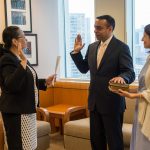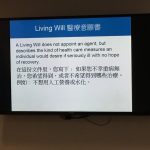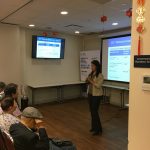For Immediate Release
Aug. 30, 2017
For More Information, Contact:
Brett Schuster, Communications Manager
bschuster@napaba.org, 202-775-9555
WASHINGTON — The National Asian Pacific American Bar Association (NAPABA) has selected five exceptional attorneys to receive NAPABA’s highest honor — the Daniel K. Inouye Trailblazer Award. This award recognizes the outstanding achievements, commitment, and leadership of lawyers who have paved the way for the advancement of other Asian Pacific American attorneys. These Trailblazers have demonstrated vision, courage, and tenacity, and made substantial and lasting contributions to the Asian Pacific American legal profession, as well as to the broader Asian Pacific American community.
The 2017 Daniel K. Inouye Trailblazer Awards will be presented on Nov. 3, 2017, at a special ceremony during the 2017 NAPABA Convention in Washington, D.C., to the following recipients:
- Honorable Halim Dhanidina
- Parkin Lee
- Willard K. Tom
- Honorable G. Michael Witte
- Honorable Youlee Yim You
The 2017 Trailblazers class is represented by a diverse and impressive group. Judge Halim Dhanidina began his career as a deputy district attorney for the Los Angeles County District Attorney’s Office for over 14 years, working his way up to the Hardcore Gang and the Major Crimes Divisions. In 2012, Los Angeles Governor Edmund G. Brown Jr. appointed Judge Dhanidina to the Superior Court of Los Angeles County — making him the first Muslim American judge in California. Judge Dhanidina was a founding law student member of NAPABA’s Los Angeles affiliate (APABA-LA), and, through his efforts, APABA-LA partnered with SHADES (Stopping Hate & Delinquency by Empowering Students). With SHADES, APABA-LA’s members served as mentors and case proctors for teenage jurors in an innovative “Teen Court” program which provided an alternative to traditional school discipline by educating offenders and helping them to develop stronger empathy toward victims.
While in law school at New York University, Parkin Lee helped pioneer the practice of allowing students of color to review law school applications from, and advocate for, potential students of color, a practice initiated at NYU and subsequently adopted at other law schools, including Harvard. At the time, there were few students of color — including Asian Pacific Americans — in the law school (there were five Asian Pacific American students in total in his class). Currently, 30 percent of the J.D. student body at NYU are students of color; 16 percent of the Fall 2016 class are Asian and South Asian. As senior vice president and chief legal officer of the Rockefeller Group, Mr. Lee is trusted counsel to one of the country’s most recognized names in real estate development and asset management. Previously, he spent 20 years at New York Life Insurance Company where he became one of the highest ranking Asian Pacific American attorneys in the insurance industry in New York. He served for many years as president of the NAPABA Law Foundation where he is currently on the board and is board chair of the Asian American Justice Center.
From representing Vietnam War protesters in the 1970s to his work with the Asian Law Caucus and other West Coast groups defending the constitutionality of the Civil Rights Act of 1988, Willard K. Tom’s impressive 38-year legal career, both in private practice and in government, has demonstrated a sustained commitment to the public good as well as to the enforcement and advancement of antitrust and consumer protection law. In 2000, Mr. Tom left his position as deputy director of the Bureau of Competition of the Federal Trade Commission (the antitrust arm of the FTC) to become a partner at Morgan, Lewis & Bockius LLP, but returned to the FTC in 2009 to serve as general counsel, becoming the first Asian American to hold that post. In that position, he took part in the most important FTC matters relating to competition and consumer protection, including three that led to significant FTC victories in the U.S. Supreme Court.
More than thirty years ago, Judge G. Michael Witte became the first Asian Pacific American to be elected a judge in the State of Indiana (1984). Since 2010, Judge Witte has served as the executive director of the Indiana Supreme Court Disciplinary Commission, one of the most important and visible positions in the Indiana legal community. He also became the first Asian American to serve as chairperson of the American Bar Association’s (ABA) Judicial Division in 2010. He received the prestigious Dr. Martin Luther King, Jr. Memorial Award (2009) from his local community and was honored by the ABA National Conference of Specialized Court Judges as its National Distinguished Judge of the Year (2008). His 25 year judicial career included service as judge of the Dearborn County Court, Lawrenceburg, Indiana (1985–2000); judge of the Dearborn Superior Court No. 1 (2000–2008); and judge of the Wayne Superior Court No. 1, Richmond, Indiana (2009).
In 2016, Judge Youlee Yim You, United States Magistrate Judge for the District of Oregon, was appointed as the first Asian American federal judge in Oregon. Before that, in 2007, the Oregon governor appointed her as the first female Asian American trial judge in the state. Prior to her appointment to the bench, Judge You’s legal career focused primarily on criminal law. She served as a prosecutor in Brooklyn, New York; a death penalty staff attorney for the federal court in Los Angeles; and as both an assistant attorney general and public defender in Oregon. Throughout her career, she has served on various legal committees and community organizations, and performed volunteer service, including a month at Mother Teresa’s orphanage in India. She received a pro bono service award from the Asian Pacific American Legal Center (now Asian Americans Advancing Justice) in Los Angeles, an Award of Merit from the Multnomah (OR) Bar Association, and will be receiving an award from the Oregon Asian Pacific American Bar Association in September.
NAPABA congratulates the 2017 Daniel K. Inouye Trailblazer Award recipients and thanks them for paving the way for Asian Pacific American attorneys.
For more information, the media may contact Brett Schuster, NAPABA communications manager, at 202-775-9555 or bschuster@napaba.org.
The National Asian Pacific American Bar Association (NAPABA) is the national association of Asian Pacific American attorneys, judges, law professors, and law students. NAPABA represents the interests of almost 50,000 attorneys and approximately 75 national, state, and local Asian Pacific American bar associations. Its members include solo practitioners, large firm lawyers, corporate counsel, legal services and non-profit attorneys, and lawyers serving at all levels of government.
NAPABA continues to be a leader in addressing civil rights issues confronting Asian Pacific American communities. Through its national network of committees and affiliates, NAPABA provides a strong voice for increased diversity of the federal and state judiciaries, advocates for equal opportunity in the workplace, works to eliminate hate crimes and anti-immigrant sentiment, and promotes the professional development of people of color in the legal profession.
To learn more about NAPABA, visit www.napaba.org, like us on Facebook, and follow us on Twitter (@NAPABA).
National Asian Pacific American Bar Association | 1612 K St. NW, Suite 510 | Washington, D.C. 20006 | www.napaba.org










